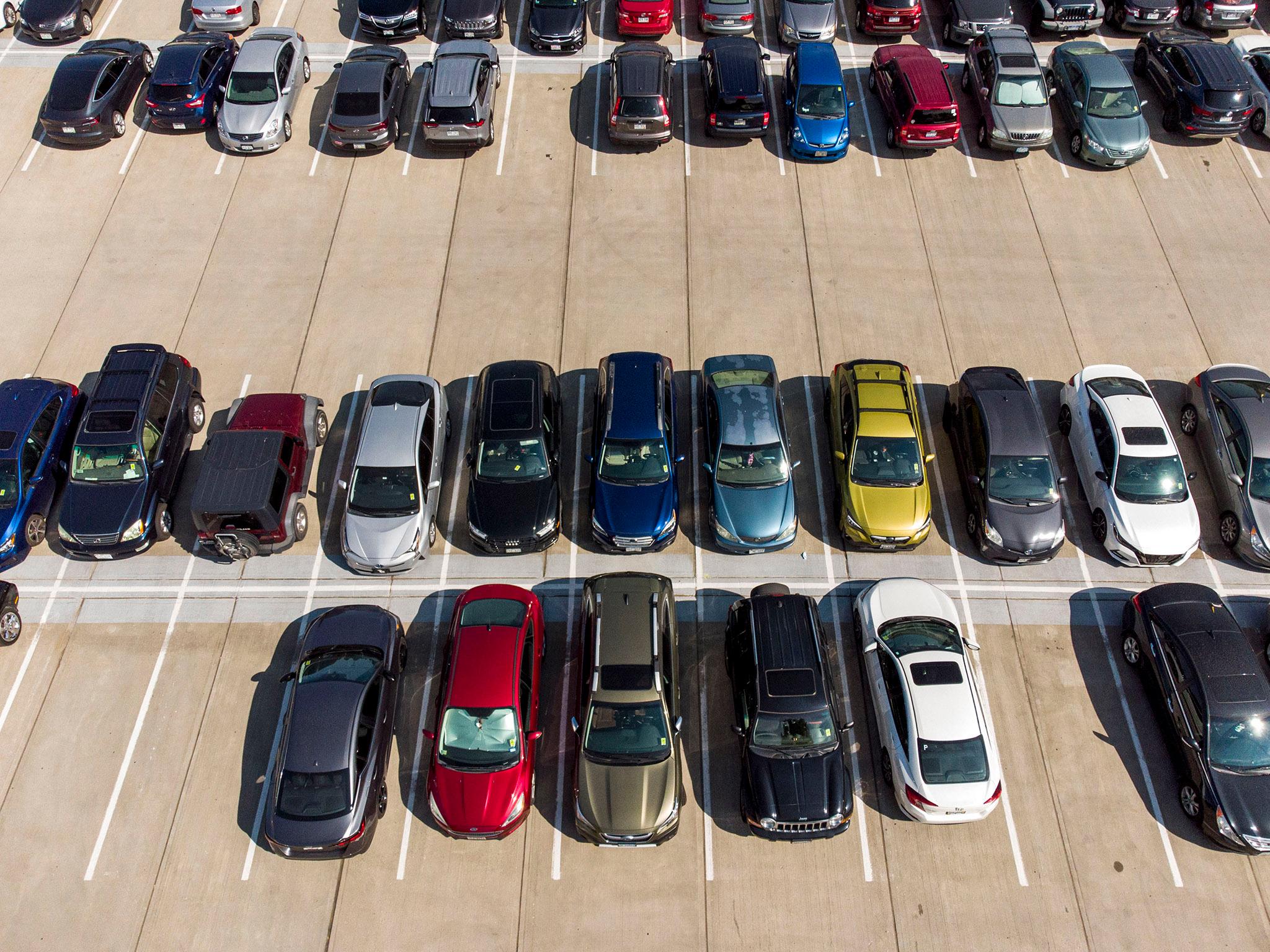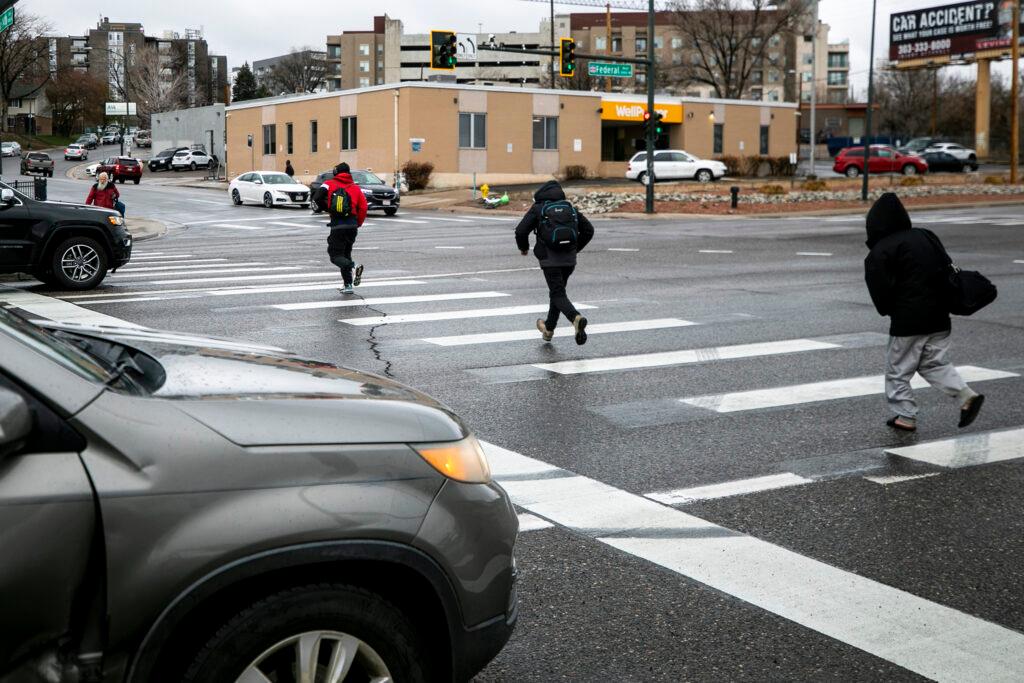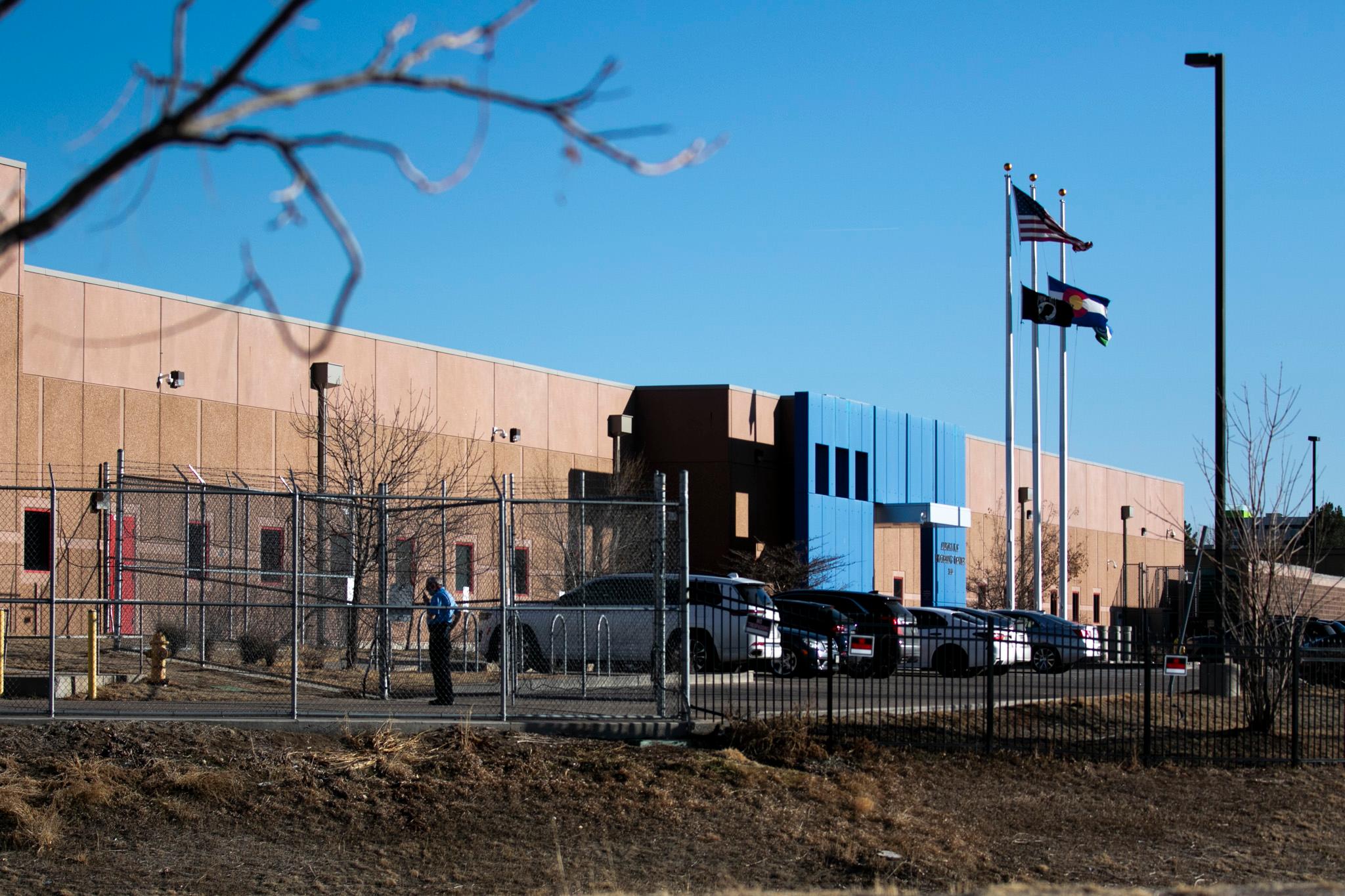
A legislative committee will consider a bill on Tuesday that could raise up to $20 million a year for projects to make the roads safer for pedestrians and cyclists by creating a new registration fee that would scale with the weight of a vehicle.
The higher the weight of a car, truck or SUV, the more its owner would pay, because, supporters say, heavier and larger vehicles are more deadly to pedestrians and cyclists. Research backs up that claim, and pedestrian deaths in Colorado reached an all-time high of 115 last year.
“We’re looking at this and trying to do something about it,” said state Sen. Lisa Cutter, D-Jefferson County, a prime sponsor of the proposed bill.
Money raised by the fee would go to a new enterprise within the Colorado Department of Transportation that would fund infrastructure such as separated bike lanes, road narrowing and automated speed cameras.
The idea of charging higher fees for heavier cars has already taken root in places like Washington, D.C., and France, sometimes also with the intent of encouraging the use of more climate-friendly small cars.
Such a fee would touch a lot of Coloradans. Light trucks, which include both SUVs and pickups, are hugely popular in Colorado. They accounted for 86.9 percent of new vehicle registrations last year according to industry data.
But the proposed annual fees in the state bill would be relatively small, ranging from $4.50 for a 3,500-pound vehicle, a Toyota RAV4, for example, to $29.90 for vehicles between 8,500 and 9,499 pounds. That would include the 9,063-pound Hummer EV. Lawmakers may also consider adding higher fees for any vehicle over 9,500 pounds.
Vehicles under 3,500 pounds would be spared the new fee. And the fees would only apply to vehicle owners in the state’s 12 most-populous counties, where most pedestrian and bicycle injuries and deaths occur.
“This is a great bill in so far as it's not going to punish folks in Moffat County who are using their truck on the ranch or in the trade,” said AAA Colorado Spokesman Skyler McKinley, who has advocated for pedestrian safety at the Capitol and supports the bill.
Some street safety advocates wanted the fees to be higher. But voters in 2020 passed limits on how big fees can be without voter approval.
“We would definitely be looking at a funding mechanism that would be big enough to impact consumer choice when they purchase a vehicle,” said Rachel Hultin, director of policy and government affairs for Bicycle Colorado, which helped draft the bill. “Unfortunately … [fee limits] really prevent us from taking that model.”
But the bill’s own sponsor says her goal isn’t to penalize drivers of trucks and SUVs, and is open to changes.
Cutter said her only goal with the bill is to increase funding for road safety projects.
“To change purchase behavior – no,” she said. “We’re strictly looking at how we legitimately and logically fund these things.”
Matthew Groves, president and CEO of the Colorado Automobile Dealers Association, opposes the bill’s fee structure and suggested the legislature appropriate more money for road safety if they believe it’s a priority.
“Coloradans are just tired of getting fee’d to death,” Groves said.
State lawmakers have increasingly looked to fees because Colorado’s Taxpayer Bill of Rights requires voter approval for any new taxes, something voters rarely grant. The state’s gas tax has remained stagnant at 22 cents per gallon since TABOR passed in 1992, but the legislature has raised vehicle fees, which TABOR does not control, repeatedly since then.
Cutter said a new revenue stream like a fee is attractive because it doesn’t take away funding from some other important priority. Gov. Jared Polis’ team is supportive of the goal of improving road safety, she said, but is trying to “figure out ways that we could adequately fund this,” which could mean finding the money through a different source.
“I was kind of a fan of the funding mechanism, but also you have to look at it from multiple different perspectives,” she said. “I never want to shut the door on something else that makes sense and accomplishes what we need to accomplish.”

Asked for comment, a spokesperson for Polis said only that, “The Governor’s Office reviews all bills moving through the process, including interim committee bills.”
Hultin, with Bicycle Colorado, said in a later interview that her organization is also focused primarily on increasing funding for road safety projects, and would be open to a source other than the fee.
“We are supporting whatever it takes to get this bill through the legislature and to get that funding in place,” she said. “We are proposing to do it through a fee and we understand there's other ways to do this and we support the interactions between the governor's office and the legislature to figure out the best for that.”
The bill is part of a slate of proposals being considered by the Transportation Legislation Review Committee, a temporary body lawmakers set up to keep working on transportation policies while the legislature is out of session.
If the interim committee gives the bill its stamp of approval next week, it will still need to go through the full legislative process when the session begins in January 2024.









